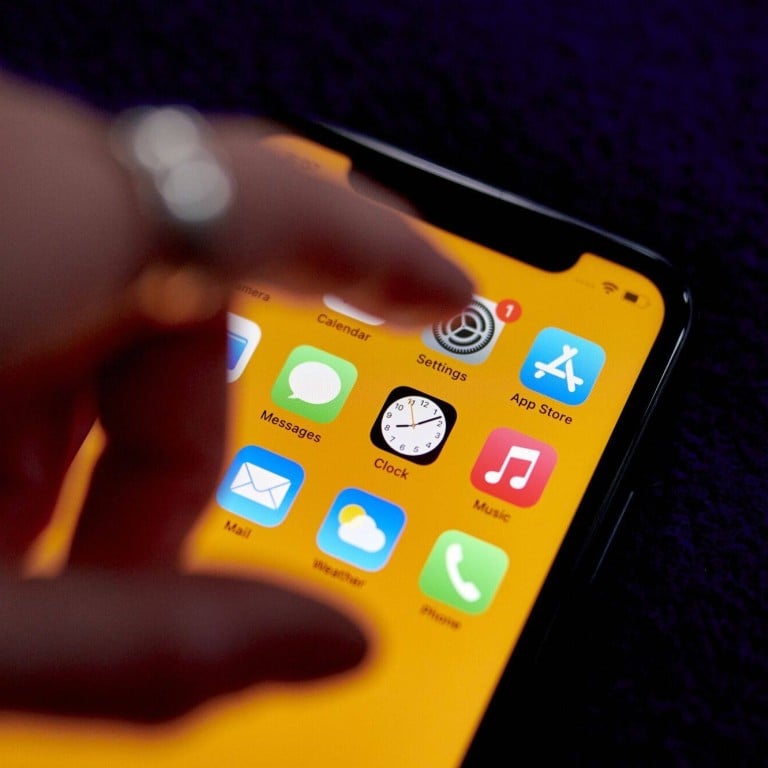
China orders government workers to stop using iPhones amid heightened tensions with US
- Ministries with portfolios focused on investment, trade and international affairs received orders on the phone ban last month, sources say
- Measures are believed to be aimed at eliminating perceived national security risks from telecoms devices made by a US company
A handful of Chinese ministries have told employees to stop using Apple’s iPhones at work, citing national security risks amid heightened geopolitical tensions with the United States, according to several people familiar with the matter.
The orders were handed down in August to employees at ministries whose portfolios are focused on investment, trade and international affairs, according to five separate sources with knowledge of the situation.
The measures were understood to be aimed at eliminating perceived national security risks from using telecommunication devices made by a US company, sources said.
A similar ban is believed to have been in place for years for some government bodies, but the latest order has expanded that ban.
Apple removes ChatGPT-like apps from China store as tighter laws beckon
Employees in those ministries have until the end of this month to switch to other phone brands for work use, a source said.
Apple’s iPhone is also the only foreign-made smartphone with a dominant market share in China, according to the latest data from tech market tracker Counterpoint Research. According to the data, the iPhone had 17.2 per cent of the Chinese market – the same as Chinese phone maker Oppo, and only slightly behind China’s Vivo.
Since November, many Western countries have moved to ban TikTok, owned by Chinese tech giant ByteDance, from federal government devices over concerns that Americans’ user data could be handed over to the Chinese government if Beijing forced the company to do so.
Beijing’s iPhone move, which has not been made public, comes amid mounting disputes with Washington over trade, technology and espionage.
Xiaomi reasserts goal to challenge Apple’s iPhone at launch of new products
In July, State Security Minister Chen Yixin called for stricter measures to “proactively defend” against spies to strengthen national security and the Communist Party’s leadership, citing risks from an unpredictable global environment.
It is not the first time Beijing has imposed restrictions on foreign technology over national security concerns.
The ban on Tesla is still in place, according to sources.
Beijing has also tightened legal frameworks to strengthen national security, including introducing legislation to ensure data collected in China stays within its territory.
A new anti-espionage law that took effect in July prohibits cyberattacks against the government to gain data and information “related to national security and interests” without permission.
Apple supplier Foxconn begins iPhone 15 production in India
Apple has hosted Chinese users’ data in a data centre located in the southwestern province of Guizhou since 2018.
In 2021, the Ministry of Industry and Information Technology issued draft regulations requiring that all smart vehicles store data collected in China within its borders. Tesla opened a data centre in Shanghai the same year.


